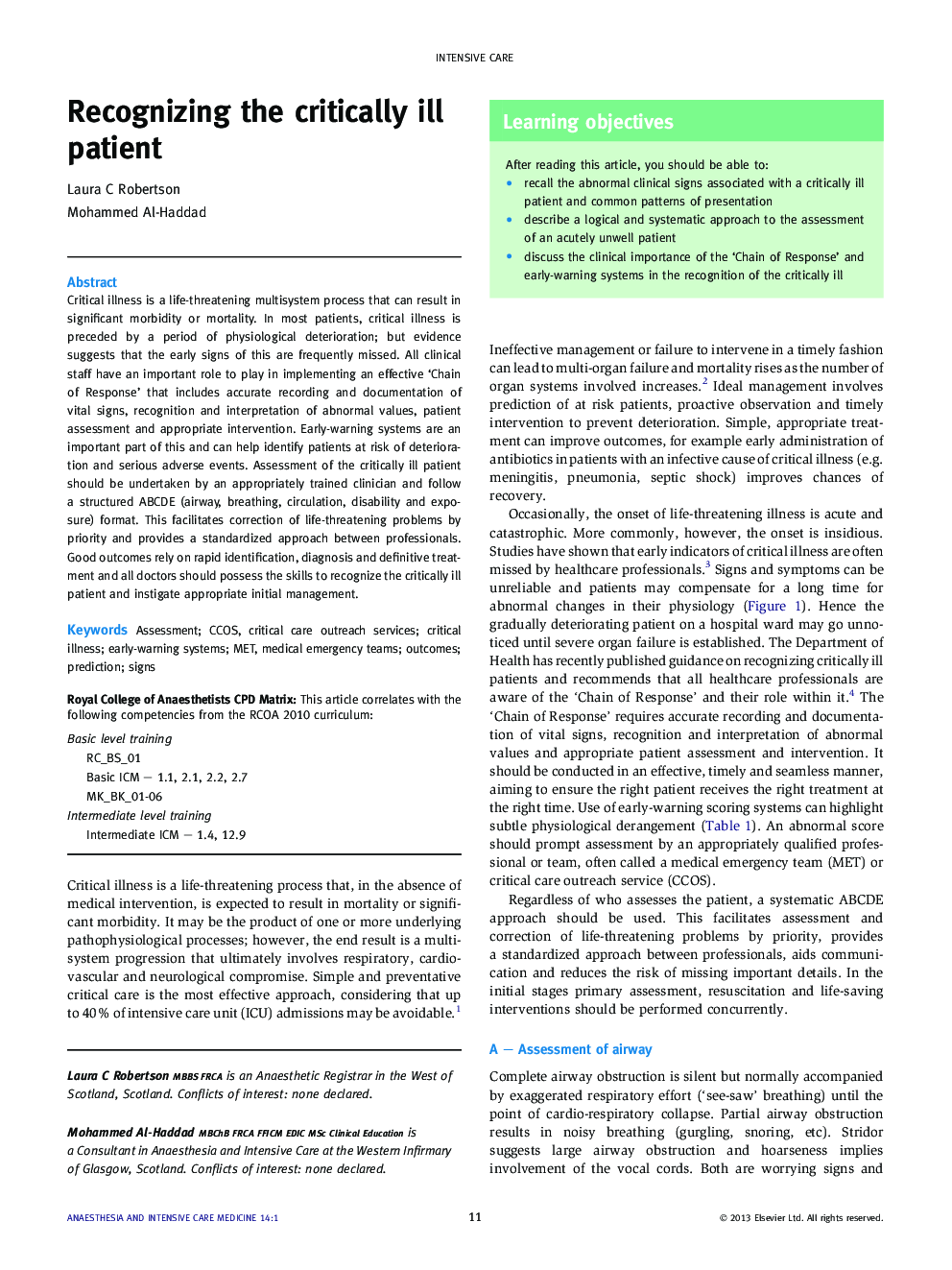| Article ID | Journal | Published Year | Pages | File Type |
|---|---|---|---|---|
| 2742754 | Anaesthesia & Intensive Care Medicine | 2013 | 4 Pages |
Critical illness is a life-threatening multisystem process that can result in significant morbidity or mortality. In most patients, critical illness is preceded by a period of physiological deterioration; but evidence suggests that the early signs of this are frequently missed. All clinical staff have an important role to play in implementing an effective ‘Chain of Response’ that includes accurate recording and documentation of vital signs, recognition and interpretation of abnormal values, patient assessment and appropriate intervention. Early-warning systems are an important part of this and can help identify patients at risk of deterioration and serious adverse events. Assessment of the critically ill patient should be undertaken by an appropriately trained clinician and follow a structured ABCDE (airway, breathing, circulation, disability and exposure) format. This facilitates correction of life-threatening problems by priority and provides a standardized approach between professionals. Good outcomes rely on rapid identification, diagnosis and definitive treatment and all doctors should possess the skills to recognize the critically ill patient and instigate appropriate initial management.
